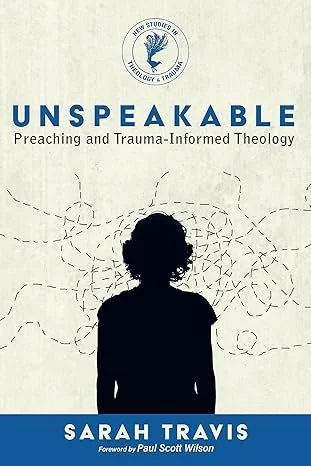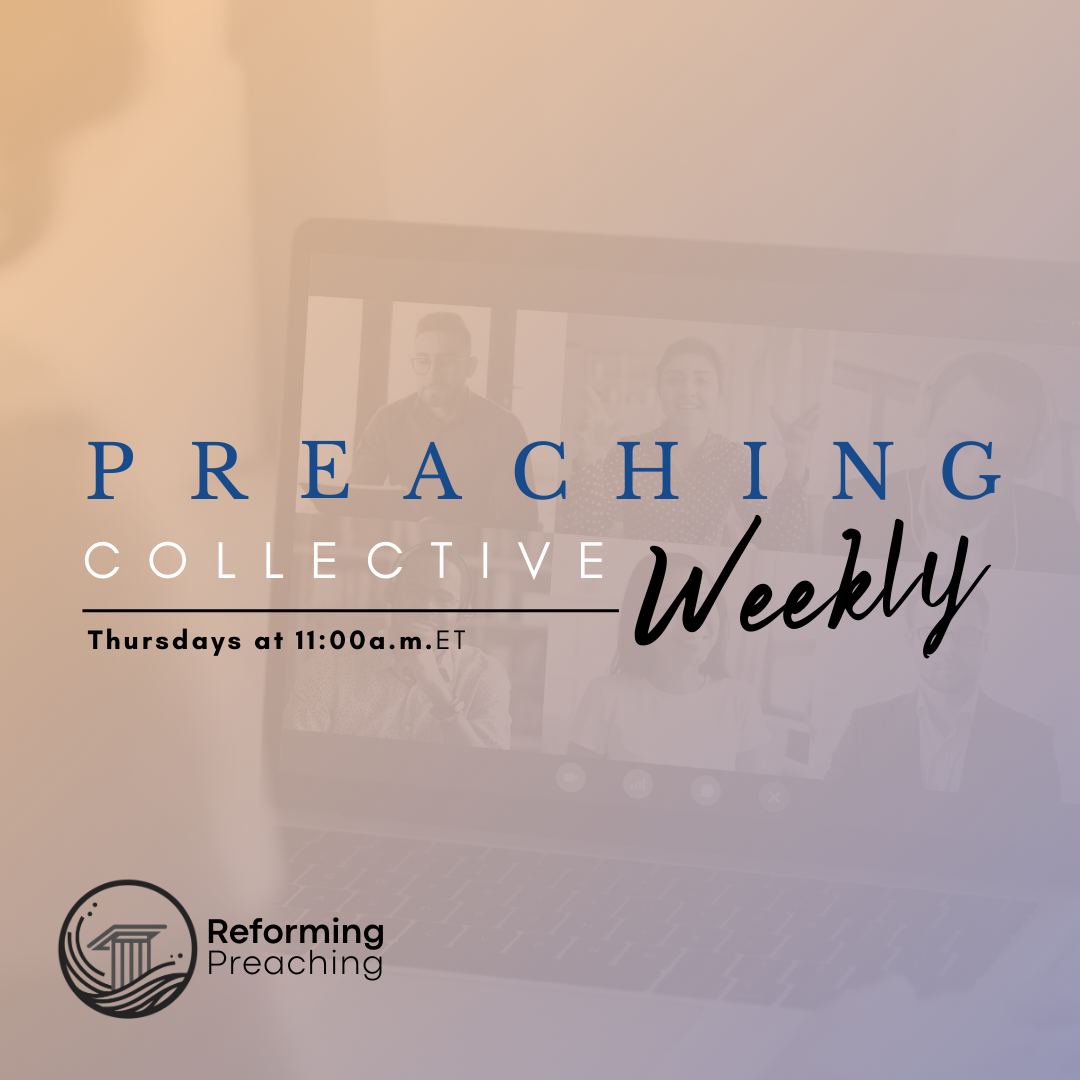Trauma-Informed Preaching
In our churches today, we preach to congregations where people are carrying untold burdens — personal pain, communal grief, generational wounds, every type of trauma. The pulpit is not immune to these realities either. Preachers bring their own scars, questions, and unresolved tensions into the sacred task of proclamation.
Knowing this, how do we preach in a way that acknowledges trauma without re-opening wounds?
How can our sermons participate in healing without bypassing the brokenness?
This is a question that our very own Rev. Dr. Sarah Travis (Associate Professor, and Ewart Chair in the Practice of Ministry and Faith Formation at Knox College) has studied and unpacks in her book Unspeakable: Preaching and Trauma-Informed Theology. This week, as we consider what trauma-informed ministry looks like, we want to highlight this conversation around Trauma-Informed Theology and Trauma-Informed Preaching. Below you’ll find a link to a conversation hosted by the Center for the Study of Bible and Violence, where Dr. Travis opens up about her personal and theological journey, revealing how her own experience of trauma reshaped her understanding of preaching - it’s definitely worth a listen!
The book and the conversation offer a deeply moving invitation into preaching that is embodied, aware, and profoundly pastoral.
What Is Trauma-Informed Theology?
Trauma-informed theology begins by recognizing that people are wounded. Many of us carry grief, fear, or pain in ways that shape how we experience God and Scripture. People bring their full selves into church, often carrying stories they haven’t spoken aloud. A trauma-informed preacher tries to be mindful of that reality, and begins to pay attention to how those wounds show up in the life of the church.
Trauma affects the whole person—body, mind, and spirit. Our bodies carry tension, fear, and memory. Someone who has experienced trauma may feel it in their chest, their shoulders, or their stomach. That pain can show up in how they listen, how they sing, how they respond to prayer or to certain words in a sermon. Preaching, then, isn’t just about words—it’s about the whole environment we create and how we care for those who are listening.
Preachers also bring their full selves into the pulpit. Our bodies are part of how we preach. How we speak, how we move, how we use our voice or stand in front of others—these all communicate something. Our own experiences, including our own wounds, shape how we approach the text and the people we’re speaking to. Being trauma-informed means we care for our own bodies too. It reminds us to be gentle with ourselves, just as we try to be gentle with those who are listening.
How Does Trauma-Informed Theology Shape Preaching?
Trauma-Informed Preaching means we don’t assume everyone is doing “fine.” We avoid quick fixes or overly cheerful messages. Instead, we make space for honesty, lament, and difficult questions. Think about it, how can we speak resurrection without denying crucifixion?
Trauma-informed preaching asks: What might this passage sound like to someone who is grieving? What parts of this sermon could re-open old wounds? How can we name suffering while still pointing to hope?
It’s not about having all the answers. It’s about being present, careful, and compassionate.
In her book Unspeakable, Sarah discusses these questions and offers tools to navigate the interplay between text and trauma, drawing from both theology and trauma theory to develop homiletical practices that comfort without coercing.
How does this work in real examples?
In the conversation, Sarah talks about how trauma-informed preaching often starts by slowing down and asking different kinds of questions about the text and the people who will hear it. She calls out how we often want to resolve tension quickly in our sermons—ending with hope or tying things up with a neat theological “bow.” Trauma-informed preaching resists that. It allows space for the text to stay unresolved if that’s where people are. It makes room for silence, struggle, and mystery.
Example: The Easter Story in Mark
Sarah refers to her work on Mark’s resurrection story, where the women flee from the tomb in fear and say nothing to anyone. Rather than jumping quickly to “He is risen!” trauma-informed preaching might pause here: What does it mean to sit with fear and silence? How does that reflect the experience of those who have lived through trauma?
Example: Preaching the Massacre of the Innocents
In another example, Sarah shares how she preached on the story of the Massacre of the Innocents alongside a remembrance of a real-world tragedy. Trauma-informed preaching doesn’t avoid hard texts; it engages them with care. It asks: What does this story sound like to someone who has lost a child? How do we name horror in Scripture without causing further harm?
Explore Trauma-Informed Theology and Preaching Further:
Watch the conversation between Rev. Dr. Sarah Travis and the Center for the Study of Bible and Violence below.
Read the book: Unspeakable: Preaching and Trauma-Informed Theology is part of the “New Studies in Theology and Trauma” series and offers both theological depth and practical guidance for preachers navigating a world of suffering - learn more below.
Join the Preaching Collective Weekly: Starting again in September, Sarah will host weekly sermon prep gatherings, where participants collaboratively explore the upcoming lectionary texts. These sessions can be a great start to consider the Biblical text through a trauma-informed lens. Learn more here.
Unspeakable: Preaching and Trauma-Informed Theology (New Studies in Theology and Trauma)
Unspeakable probes the relationship between trauma theory and Christian theology in order to support preachers in the task of crafting sermons that adequately respond to trauma in the pews and the world at large. How might sermons contribute to resiliency and the repairing of wounds caused by traumatic experiences? This book seeks to provide a theological lens for preachers who wonder how their 'beautiful words' can address suffering amid traumatic wounding. Preaching is a healing discourse that proclaims gospel, or good news. Gospel is a complicated reality, especially in the face of trauma. Drawing on various theologies and insights from trauma theory, Unspeakable challenges the notion of a triumphant gospel, seeking an in-between perspective that honors both resurrection and the trauma that remains despite our desire to get to the good news. It builds on images of the preacher as witness and midwife in order to develop homiletical practices that acknowledge the limitations of language and imagination experienced by traumatized individuals.
About Preaching Collective Weekly
Sermon preparation can often feel like a solitary endeavor. But what if you had a community to reflect with, to share insights, and to support you in your preaching ministry?
Preaching Collective Weekly offers a space for ministers, pastors, and anyone involved in preaching to come together for collective reflection on the Revised Common Lectionary texts for the upcoming Sunday. Whether you're a seasoned preacher or just beginning, this is an opportunity to engage with the scriptures in community.
What You’ll Gain
Fresh Insights: Engage the lectionary texts through diverse perspectives and shared reflection.
Trusted Community of Peers: Join fellow preachers who understand the joys and pressures of weekly sermon writing. Over time, you’ll form connections that extend beyond the Zoom call.
Practical Skills: Simple, repeatable practices that make sermon writing less isolating and more engaging.


